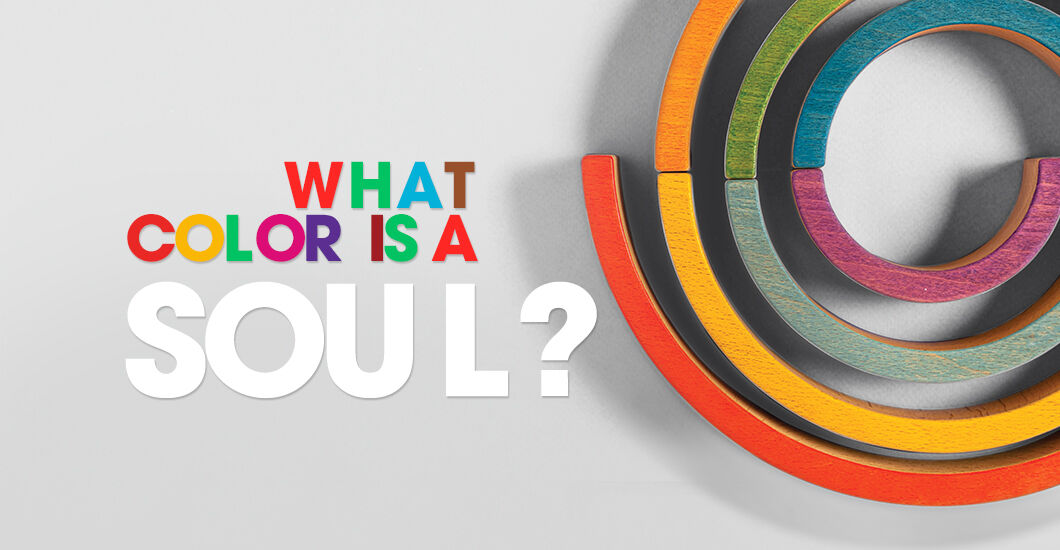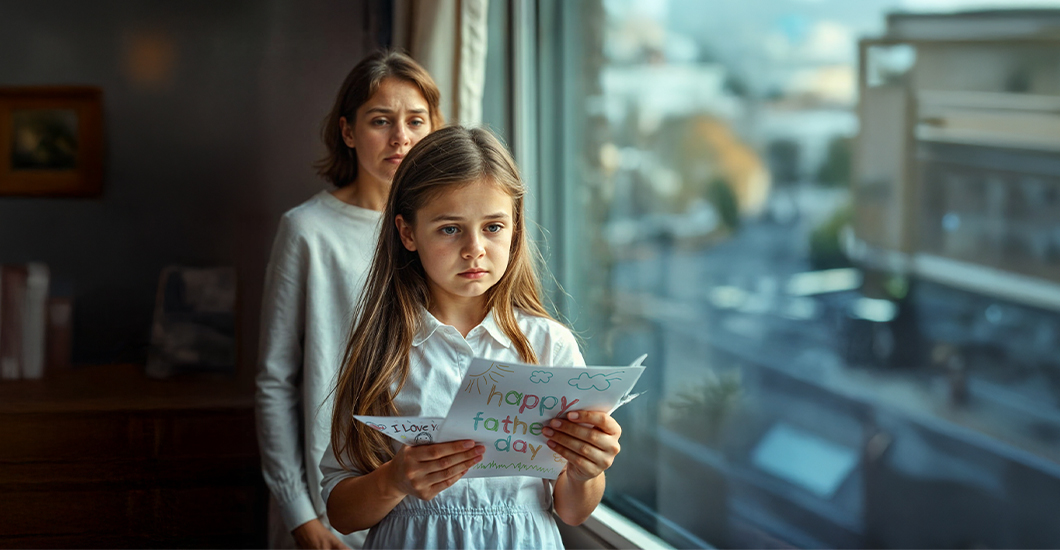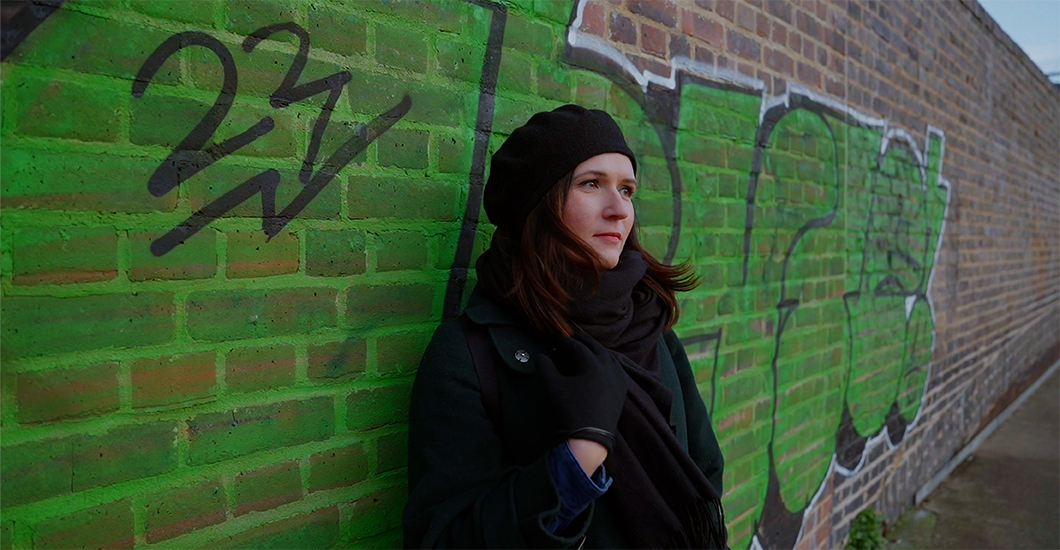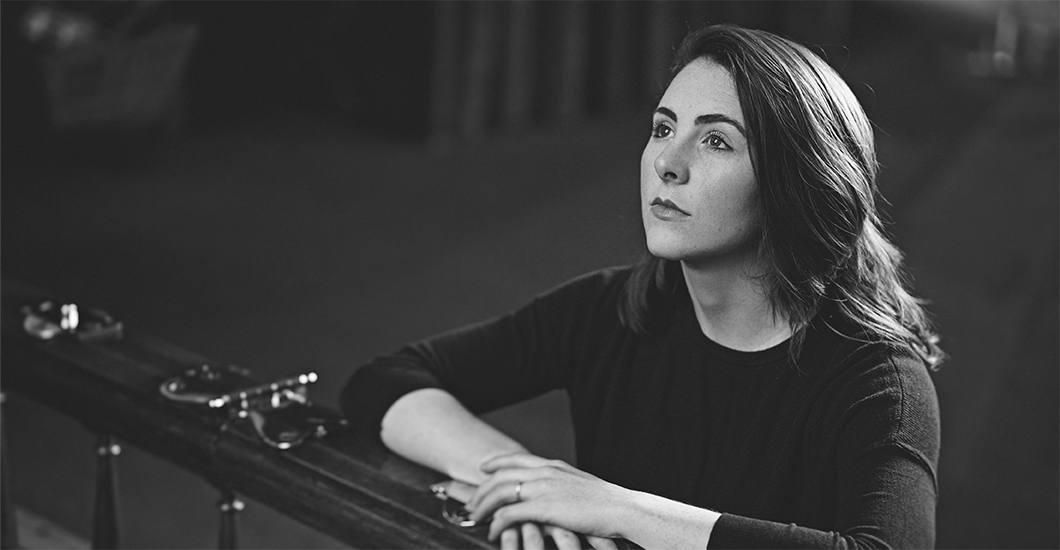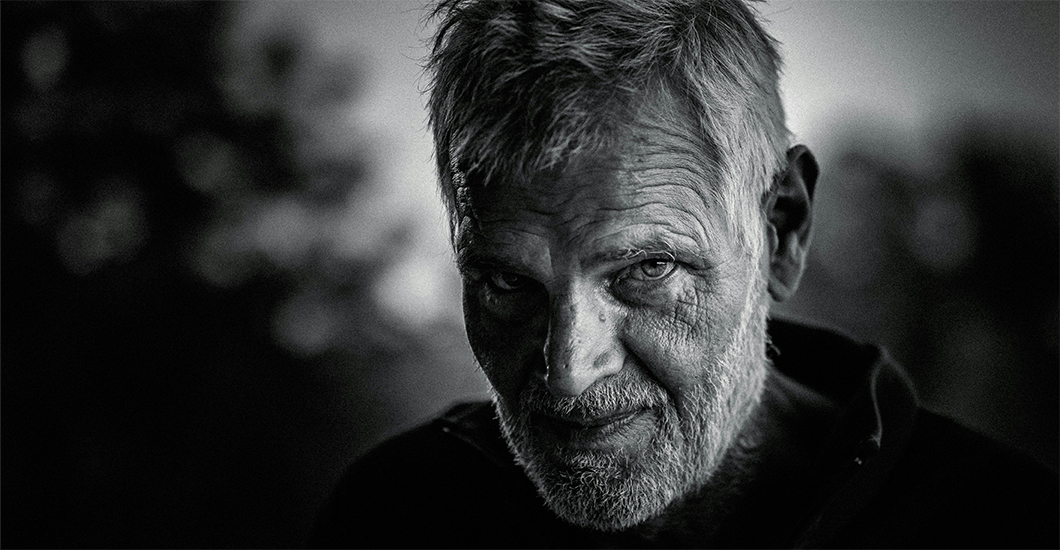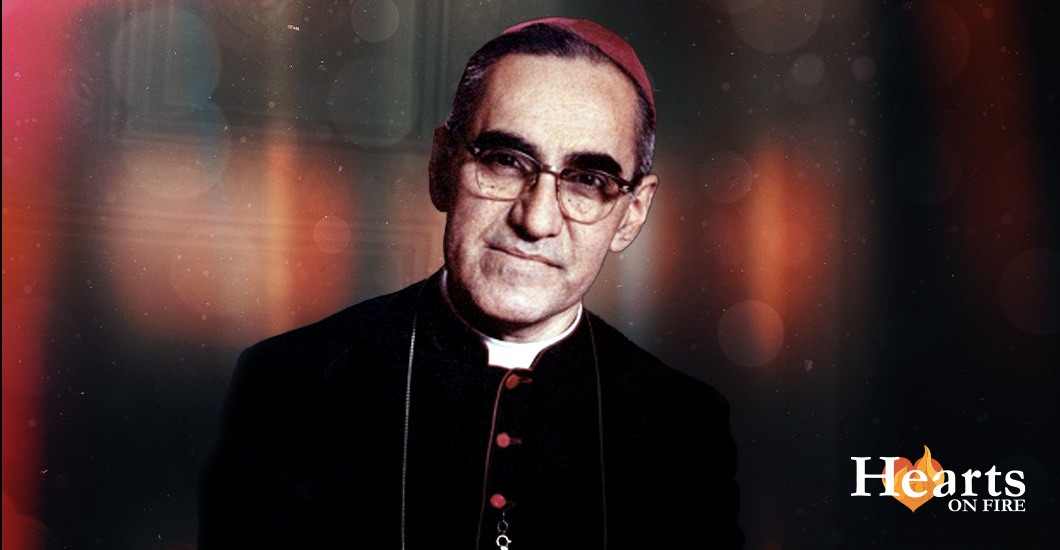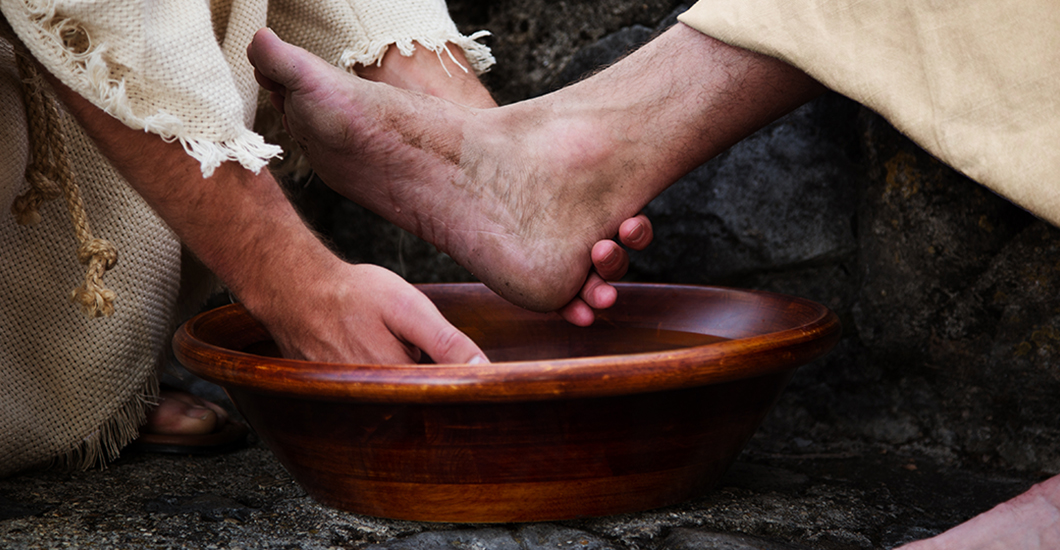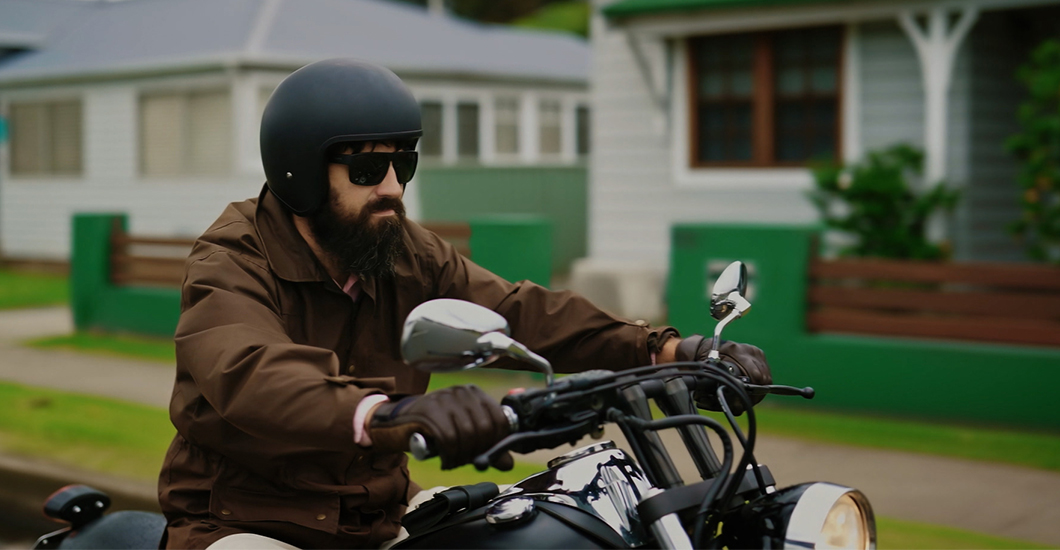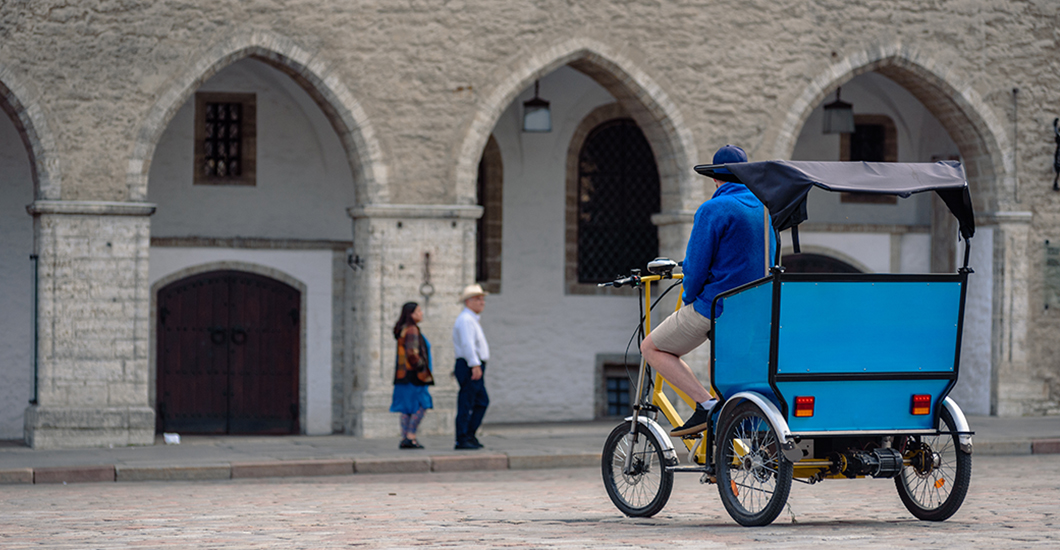Home/Evangelize/Article
Trending Articles
What Color Is a Soul?
Ever wondered what is the shade of a soul? Let me share what God infused into my mind while journaling…
I am a believer in Journal Writing. I believe everyone can write. If you can think and speak, you can write since writing is just talk written down. But I have been taught a new lesson recently. Pen or pencil in hand (or keyboard), as you draw down those thoughts, worries, and trivia in your mind, another Voices can be heard. Sometimes, God can speak to you through you!
I have a morning routine of reading from three daily devotionals after attending mass. I love God’s Word and I know it is living and active, so when a Scripture quote “speaks” to me, I write it down in my journal. Then I might write down my own thoughts.
On June 24, 2021, I was doing just that. I was feeling very bothered by all the divisions in our world. This group versus that group kind of thinking, and bickering seemed to be all about. I felt that mankind had so more to unite us than divide us. I picked up my pen and started to write. I wrote for about 15 minutes without stopping. I wrote in poetic form as well which is very rare for me. The writing just flowed and I let it. Then it was over and it was complete. God seemed to be confirming what I had thought about mankind’s connections. He gave me the reason for that connection. He even gave me the title — “What Color is a Soul?”
According to the Catechism of the Catholic Church, “The human soul is created directly by God and is not “produced” by the parents. (CCC 366-368, 382) Saint Hildegard of Bingen said, “The soul speaks: I am called to be the companion of angels, because I am the living breath God sent forth into dry clay.” Again, we find in the Catechism, “The soul causes the material body to be a living body.” (CCC 362-365,382)
Now, my journal writing did not include references to the Catechism of the Catholic Church, but I include them because they support what was given. But let’s go on with the entry:
God goes about picking up and mixing the earthen blend of the dry dirt. When He has just it just right, He puts in the perfect part—the God part. Does He wrench it from His own Sacred Heart? With the God part in, God bestows a Breath and perhaps a kiss. And a new creation is sent to earth. Every human being is created with a soul. No one is alive without one. No exceptions ! Doesn’t this unite every being on the planet? We know also that this soul never dies. The flesh decays, the God part lives on. It is the eternal life given by the Father.
Now our God loves variety. He didn’t just create “flowers”. He created every form, color, size, variety, function, perfume of flowers. Pick any form of creation animal, mineral, celestial, etc and you will find myriad expressions of each. God’s imagination is well, Godly. And all He creates is good. So we know the soul-bearing human is created in every color, size, shape,gift and grace. In every part of the globe, humans are connected by God’s amazing gift of our souls.. What color is a soul? It is not black, white, red, brown, yellow, etc. Our Artist in heaven gathers all shades of the universe. In His Image, He colors us majestic and grand. Each of us are meant to sparkle and shine. Don’t you think that it’s a sacred sign that we are innermost Divine. What color is a soul? It is Divine!
That journal entry calms and comforts me. It tells me that God is in control and He wants me to trust Him. My Savior knows my thoughts! The wisdom in the words was not my wisdom. I had been seeking an answer, and it was given. I feel that God wrote to me, through me, after my prayer. The Presence of God is ever with us and within us. God speaks to us through other people and the beauty of nature around us. He talks to us through our laughter, our music and even our tears. Many times we just don’t notice, but what about the times we do notice? Do we think ourselves out of that holy moment? When our thoughts are confirmed, or when our readings answer a question that has been on our minds or when we are “taught” as I was, do we tell someone about it? We need to share these encounters with our living God more often. It makes the Kingdom of God present on earth when we do. How much God loves us! Each of us is a beloved child of our good God. We don’t earn His love. We can’t lose it either. Therein lies the greatness of our merciful God.
Read Scripture. Pray. Meditate. Write. God can write to you, through you! Oh, and remember journal writing is unedited writing. Don’t stop to check spelling. Don’t wait for the perfect sentence to begin. Just write! You never know what God has to say to you.
Joan Harniman is a retired teacher. She has co-authored two books of Biblical plays, skits, and songs, and has published articles in Catechist and teacher magazines, as well as Celebrate Life magazine. She lives in New York with her husband, children, and five grandchildren.
Related Articles
From being a healthy Uni-student to a paraplegic, I refused to be confined to a wheelchair… In the initial years of University, I slipped a disc. Doctors assured me that being young and active, physiotherapy, and exercises could make me better, but despite all effort, I was in pain every day. I had acute episodes every few months, which kept me in bed for weeks and led to repeated hospital visits. Nevertheless, I held on to hope, until I slipped a second disc. That's when I realized my life had changed. Angry at God! I was born in Poland. My mom teaches theology, so I was brought up in the Catholic faith. Even when I moved to Scotland for University and then to England, I held onto it dearly, maybe not in a do-or-die manner, but it was always there. The initial phase of moving to a new country wasn’t easy. My home had been a furnace, with my parents fighting among themselves most of the time, so I had practically run away to this alien land. Leaving my difficult childhood behind, I wanted to enjoy my youth. Now, this pain was making it difficult for me to hold down jobs and keep myself financially balanced. I was angry at God. Yet, He wasn’t willing to let me go. Trapped at home in acute pain, I resorted to the only available pastime—my mother’s collection of religious books. Slowly, the retreats I attended and the books I read led me to realize that despite my distrust, God really wanted my relationship with Him to be strengthened. But I was also not totally over the anger that He wasn’t healing me yet. Eventually, I came to believe God was angry at me and didn’t want to heal me so I thought maybe I could trick him. I started looking for a holy priest with good ‘statistics’ for healing so that I could get healed when God was busy doing other things. Needless to say, that never happened. A Twist in My Journey One similar day in a prayer group, I was in so much pain. Fearing an acute episode, I was planning to leave when one of the members there asked if there was something I would like them to pray for. I was having some trouble at work, so I said yes. As they were praying, one of the men asked if there was some physical illness that I needed praying over. They were way down on my ‘healing rating’ list, so I didn’t trust that I would receive any relief, but I said ‘Yes’ anyway. They prayed and my pain was gone. I returned home, and it was still gone. I started jumping and twisting and moving around, and I was still okay. But nobody believed me when I told them I was healed. So, I stopped telling people; instead, I went to Medjugorje to thank Our Lady. There, I had an encounter with a man who was doing Reiki and wanted to pray over me. I refused, but before leaving he gave me a goodbye hug which left me worried because I recalled his words that his touch has power. I allowed fear to take over and falsely believed this evil’s touch was stronger than God. I woke up the next morning in excruciating pain, unable to walk. After four months of relief, my pain returned so acutely that I thought I wouldn’t even be able to make it back to the UK. When I returned, I found that my discs were touching the nerves, causing even more drastic pain for months. After six or seven months, the doctors decided that they needed to do the risky procedure on my spine that they had been keeping off for a long time. The surgery damaged a nerve in my leg, and my left leg was paralyzed knee-down. A new journey began there and then, a different one. I Know You Can Do it The very first time I arrived home in a wheelchair, my parents were terrified, but I was filled with joy. I loved all the technological stuff…every single time someone pressed a button on my wheelchair, I was excited like a kid. It was over the Christmas period, when my paralysis started regressing that I realized the extent of damage to my nerves. I was admitted to a hospital in Poland for a while. I didn't know how I was going to live. I was just praying to God that I needed another healing: “I need to find you again because I know you can do it.” So, I found a healing service and was convinced that I would be healed. A Moment You Don’t Wanna Miss It was Saturday and my father had initially not wanted to go. I just told him: “You don't want to miss out when your daughter is healed.” The original schedule had a Mass, followed by the healing service with Adoration. But when we arrived, the priest said they had to change the plan as the team that was meant to lead the healing service was not there. I remember thinking I don’t need any team: “I only need Jesus.” When the Mass started, I did not hear a single word. We were sitting on the side where there was a Divine Mercy picture. I looked at Jesus like I had never seen Him before. It was a stunning image. He looked so beautiful! I never saw that picture anywhere after that. All through Mass, the Holy Spirit was enveloping my soul. I was simply saying in my head ‘Thank you’ even though I didn’t know what I was thankful for. I wasn’t able to ask for healing, and it was frustrating because I needed healing. When adoration started I asked my mom to take me to the front, as close to Jesus as possible. There, seated up front, I felt someone touching, and massaging my back. I was getting so warm and cozy that I felt like I would fall asleep. So, I decided to walk back to the bench, forgetting that I could not ‘walk.’ I just walked back and my mom ran after me with my crutches, praising God, saying: “You are walking, you are walking.” I was healed, by Jesus in the Blessed Sacrament. As soon as I sat down, I heard a voice saying: “Your faith has healed you.” In my mind, I saw the image of the woman touching the cloak of Jesus when He was passing. Her story reminds me of mine. Nothing was helping until I reached this point where I started trusting Jesus. The healing came when I accepted Him and told Him: “You are all I need.” My left leg had lost all its muscles and even that grew back overnight. It was very significant because the doctors were measuring it before, and they found an astounding, unexplainable change. Shouting it Out This time around when I received the healing, I wanted to share it with everyone. I wasn't embarrassed anymore. I wanted everyone to know how amazing God is and how much He loves all of us. I'm no one special and I haven't done anything special to receive this healing. Being healed also doesn't mean that my life became super-comfortable overnight. There are still difficulties, but they are much lighter. I take them to the Eucharistic Adoration and He gives me solutions, or ideas on how I can deal with them, as well as the assurance and trust that He will deal with them.
By: Ania Graglewska
MoreEver experienced what it’s like to be in adoration? Colette’s beautiful account could be life-changing for you. I remember that as a child, I used to think that speaking to Jesus in the Blessed Sacrament was either the most incredible or crazy notion. But that was long before I encountered Him. Years from that initial introduction, I now have a treasure trove of little and big experiences that hold me close to the Eucharistic Heart of Jesus, leading me ever closer, one step at a time…The journey is still on. Once a month, the parish I attended then held an all-night vigil which would start with the celebration of the Eucharist, followed by adoration throughout the night, broken up into hours. Every hour began with some prayer, a Scripture reading, and praise; I recall, during the initial months, the first stirrings of that feeling of being so close to Jesus. Those nights were so focused on the person of Jesus and there, I learnt to speak to the Blessed Sacrament, as if Jesus Himself was standing there. Later on, at a retreat for young adults, I came upon silent Eucharistic Adoration, which felt strange to me at first. There was nobody leading, and no singing. I enjoy singing in Adoration and I've always enjoyed people leading us in prayer. But this idea that I could sit and just be, that was new…At the retreat, there was a very spiritual Jesuit priest who would start adoration with: “Be still and know that I am God.” And that was the invitation. Me and You, Jesus I remember one specific incident that brought a profound realization of this stillness to me. I was at Adoration that day, my designated time had come to an end and the person who was supposed to be taking over from me hadn't arrived. While I was waiting, I had a distinct impression from the Lord: “That person is not here but you are,” so I decided to just breathe. They'd be here any minute I thought, so I focused on the presence of Jesus and was simply breathing. I realized, however, that my mind was leaving the building, getting busy with other cares, whereas my body was still there with Jesus. Everything that was going on in my mind suddenly camped. It was just a sudden moment, almost over before I realized what was happening. A sudden moment of stillness and peace. All the noises outside the chapel felt like music, and I thought: “My goodness, Lord, thank You…Is this what adoration is supposed to do? Lead me into a space where it's just me and You?” This made a deep and lasting impression on me, that the Eucharist is not something, it is Someone. In fact, it's not just someone, it is Jesus Himself. Priceless Gift I think our perception of His presence and gaze plays a big role. The thought of the eye of God fixed on us may feel very scary. But in reality, this is a gaze of compassion. I experience that full-on in adoration. There is no judgment, only compassion. I'm someone who is very quick to judge myself, but in that gaze of compassion from the Eucharist, I'm invited to be less judgmental of myself because God is less judgmental. I suppose I'm growing into this in a lifetime of continuous exposure to the exposed Eucharist. Eucharistic adoration has thus become for me a school of presence. Jesus is 100% present everywhere we go, but it's when I sit in His Eucharistic presence that I'm alerted to my own presence and His. There, His presence meets mine in a very intentional way. This school of presence has been an education in terms of how to approach others too. When I'm on duty in the hospital or the hospice and I'm meeting someone very ill, being a non-anxious presence to them is the only thing I can offer them. I learn this from His presence in Adoration. Jesus in me helps me be present to them with no agenda–simply to ‘be’ with the person, in their space. This has been a great gift to me because it frees me to almost be the Lord's presence with others and to allow the Lord to minister to them through me. There is no limit to the gift of peace that He gives. Grace happens when I stop and let His peace wash over me. I feel that in Eucharistic adoration, when I stop being so busy. I think that in my lifetime of learning so far, that's the invitation: “Stop being so busy and simply be, and let Me do the rest.”
By: Colette Furlong
MoreAdversities mark our lives on earth, but why would God allow that? About two years ago, I fronted up for my yearly blood test and when the results came back, I was told I had ‘Myasthenia Gravis.’ Fancy name! But neither I nor any of my friends or family had ever heard of it. I imagined all the possible terrors that may be ahead for me. Having lived, at the time of diagnosis, a total of 86 years, I had incurred many shocks. Rearing six boys was full of challenges, and these continued as I watched them build their families. I never gave into despair; the grace and power of the Holy Spirit always gave me the strength and trust I needed. I eventually depended on Mr. Google to learn more about ‘Myasthenia Gravis’ and after reading pages of what may happen, I realized I just had to trust my doctor to help me through. He, in turn, put me in the hands of a specialist. I went through a rocky road with newer specialists, changing tablets, more trips to hospital, and eventually having to give up my license. How could I survive? I was the one who drove friends to different events. After much discussion with my doctor and family, I finally realized that it was time to put my name down for acceptance into a nursing home. I chose Loreto Nursing Home in Townsville because I would have opportunities to nurture my faith. I was faced with many opinions and advices—all legitimate, but I prayed for guidance from the Holy Spirit. I was accepted into Loreto Home and made up my mind to accept what was on offer. It was there that I met Felicity. A Near-Death Experience A few years ago, there was a 100-year-flood in Townsville and a reasonably new suburb went under water with most houses inundated. Felicity’s house, like all others in the suburb, was low set, so she had about 4 feet of water throughout the entire house. As the soldiers from the Army Base in Townsville took up the task of a massive cleanup, all the residents had to find alternate accommodation to rent. She stayed at three different rental properties during the next six months, simultaneously helping the soldiers and working towards making her home livable again. One day, she began to feel unwell and her son, Brad, called the doctor on call, who advised on taking her to the hospital if things did not get better. The next morning, Brad found her on the floor with a swollen face and immediately called the ambulance. After many tests, she was diagnosed with ‘Encephalitis,’ ‘Melioidosis’ and ‘Ischemic attack,’ and remained unconscious for weeks. The contaminated flood waters she had waded through six months ago, it turns out, had contributed to an infection of her spinal cord and brain. As she floated in and out of consciousness, Felicity had a near-death experience: “As I was lying unconscious, I felt my soul leaving my body. It floated out and flew up very high to a beautiful spiritual place. I saw two people looking at me. I went towards them. It was my mother and father—they looked so young and were so happy to see me. As they stood aside, I saw something amazing, a stunning face of Light. It was God the Father. I saw people from every race, every nation, walking in pairs, some holding hands…I saw how happy they were to be with God, feeling at home in Heaven. When I woke up, I was so disappointed that I left that beautiful place of peace and love that I believed was Heaven. The priest who was tending to me all throughout my time in hospital said he had never seen anyone react as I did when I woke up.” Adversity into Blessings Felicity says she always had faith, but this experience of imbalance and uncertainty was enough to ask God: “Where are you?” The trauma of the 100-year-flood, the massive clean-up afterwards, the months of setting up her home while living in rental properties, even the nine months in hospital of which she had little memory of could have been the death of her faith. But she tells me with conviction: “My faith is stronger than ever.” She recalls that it was her faith that helped her deal with what she went through: “I believe I survived and came back, to see my beautiful granddaughter go to a Catholic High School and finish Year Twelve. She is going on to University!” Faith believes all things, heals all things, and faith never ends. It is in Felicity that I found the answer to a common question we all may face at some point in life: “Why does God allow bad things to happen?” I’d say that God gives us freewill. Men can initiate bad events, do evil things, but we can also call on God to change the situation, to change the hearts of men. Truth is, in the fullness of grace, He can bring good even out of adversity. Just as He led me to the nursing home to meet Felicity and hear her beautiful story, and just as Felicity found strength in faith as she spent endless months in the hospital, God can change your adversities into goodness too.
By: Ellen Lund
MoreWhen your path is swarming with difficulties, and you’re feeling clueless, what would you do? The summer of 2015 was unforgettable. I was at the lowest point of my life—alone, depressed, and struggling with all my strength to escape a terrible situation. I was mentally and emotionally drained, and felt that my world was going to end. But strangely, miracles unfold when we least expect them. Through a string of unusual incidents, it almost seemed as if God was whispering in my ear that He has got my back. On that particular day, I had gone to bed desperate and broken. Unable to sleep, I was once again pondering the sad state of my life as I clutched my rosary, attempting to pray. In a strange kind of vision or dream, a radiant light began emanating from the rosary on my chest, filling the room with an ethereal golden glow. As it slowly started to spread, I noticed dark, faceless, shadowy figures at the periphery of the glow. They had been closing in on me with unimaginable speed, but the golden light grew brighter and drove them farther away whenever they tried to come close to me. I felt frozen, unable to react to the strangeness of the vision. After a few seconds, the vision suddenly ended, plunging the room into pitch blackness again. Deeply disturbed and afraid to sleep, I turned on the TV. A priest was holding up a Saint Benedict medal* and explaining how it offered a divine protection. As he discussed the symbols and words inscribed on the medal, I glanced down at my rosary—a gift from my grandfather—and saw that the Cross on my rosary had the same medal embedded into it. This triggered an epiphany. Tears started rolling down my cheeks as I realized that God was with me even when I thought my life was crumbling into ruin. A fog of doubt lifted from my mind, and I found solace in the knowledge that I was no longer alone. I had never realized the meaning of the Benedictine medal before, so this newfound belief brought me great comfort, strengthening my faith and hope in God. With immeasurable love and compassion, God was ever-present, ready to rescue me whenever I slipped. It was a comforting thought that embraced my being, filling me with hope and strength. Revamping My Soul This shift in perspective propelled me on a journey of self-discovery and growth. I stopped viewing spirituality as something distant and remote from my everyday life. Instead, I sought to nurture a personal connection with God through prayer, reflection, and acts of kindness, realizing that His presence is not confined to grand gestures but could be felt in the simplest moments of everyday life. A complete transformation did not happen overnight, but I began to notice subtle changes within myself. I’ve grown more patient, learned to let go of stress and worry, and embraced a newfound faith that things will unfold in accordance with God’s will if I place my trust in Him. Moreover, my perception of prayer has shifted, evolving into a meaningful conversation stemming from an understanding that, although His benevolent presence may not be visible, God listens and watches over us. Just as a potter sculpts clay into exquisite art, God can take the most mundane parts of our lives and shape them into the most beautiful forms imaginable. Belief and hope in Him will bring better things into our lives than we could ever accomplish on our own, and enable us to remain strong despite all the challenges that come our way. *Saint Benedict Medals are believed to bring divine protection and blessings to those who wear them. Some people bury them in the foundations of new buildings, while others attach them to rosaries or hang them on their home walls. However, the most common practice is to wear the Saint Benedict medal on the scapular or embed it in a Cross.
By: Annu Plachei
MoreI approached Him for success in my studies, but He didn’t stop there… During my high school years, I experienced a remarkable journey of faith and academic growth. As a devout Catholic, I firmly believed that God's presence was constantly with me, especially when it came to my studies. I remember one particular semester, I was facing a daunting load of exams and assignments. The subjects seemed to pile up, and I felt overwhelmed by the sheer amount of information I needed to grasp. Doubt started to creep into my mind, making me question my abilities. In those moments of uncertainty, I turned to prayer as my source of solace and guidance. Each evening, I would retreat to my room, light a candle, and kneel before my crucifix. I poured my heart out to God, expressing my fears and doubts while asking for strength, wisdom, and clarity in my studies. An Invisible Guide As the weeks went by, I noticed something extraordinary happening. Whenever I encountered a challenging topic or struggled with a difficult concept, I would find unexpected clarity. It was as if a light was being shone upon my path, illuminating the way forward. I would stumble upon helpful resources or passages in books that perfectly explain complex ideas, or receive unexpected support from classmates and teachers. I started to realize that these were not mere coincidences but rather, the signs of God's presence and help in my academic journey. It was as if He was guiding me, gently nudging me towards the right resources, the right people, and the right mindset. As I continued to trust in God's guidance, my confidence grew, and my grades began to improve. I noticed a marked difference in my ability to absorb information and comprehend complex concepts. I was no longer studying alone; I had an unseen companion by my side, guiding me through every challenge and encouraging me to persevere. But it wasn't just about the grades. Through this experience, I learned valuable lessons about faith and trust. I learned that God's help was not limited to spiritual matters but extended to every aspect of our lives, including our studies. I learned that when we turn to God with sincere hearts, He not only hears our prayers but also provides the support we need. Keeping Connected This journey taught me the importance of maintaining a strong connection with God, seeking His guidance, and trusting in His plan. It reminds me that true success is not measured solely by academic achievements but also by the growth of character, resilience, and faith. Looking back, I am grateful for the challenges I faced during that semester, as they deepened my relationship with God and strengthened my conviction in His unfailing assistance. Today, as I continue my academic pursuits, I carry the lessons learned during that time, knowing that God's divine guidance will always be there to lead me on the path to knowledge and fulfillment. In a world where academic pressures can often consume us, it is essential to remember that we are not alone in our journey. As Catholics, we have the privilege of seeking God's guidance and finding solace in His presence all the time. Through this personal story, I hope to inspire others to trust in God's unwavering support, not only in their studies but in every aspect of their lives. May we all find comfort in knowing that God is our ultimate teacher, guiding us toward wisdom, understanding, and unshakeable faith.
By: Delon Rojes
MoreWhat would you do when a stranger knocks at your door? What if the stranger turns out to be a difficult person? He says his name with emphasis, in Spanish, with a certain pride and dignity, so you’ll remember who he is—Jose Luis Sandoval Castro. He ended up on our doorstep at Saint Edward Catholic Church in Stockton, California, on a Sunday evening when we were celebrating our patron feast day. Somebody had dropped him off in our relatively poor, working-class neighborhood. The music and the crowd of people apparently drew him like a magnet to our parish grounds. Unveiling the Truth He was a man of mysterious origins—we did not know how he arrived at the church, let alone who and where his family was. What we did know was that he was 76 years old, bespectacled, dressed in a light-colored, well-worn vest, and was pulling his luggage by hand. He carried a document from the Immigration and Naturalization Service granting him permission to enter the country from Mexico. He had been robbed of his personal documents and carried no other identification with him. We set about exploring and discovering who Jose Luis was, his roots, his relatives, and whether they had any contact with him. He hailed from the town of Los Mochis in the state of Sinaloa, Mexico. Anger, vitriol, and venom spewed from his mouth. He claimed that his relatives had ripped him off and robbed him of his pension in the United States, where he had worked for years, as he went back and forth to Mexico. The relatives we contacted claimed they tried to help him on various occasions, yet he called them thieves. Who were we to believe? All we knew was that we had a wandering, regular drifter from Mexico in our hands, and we could not abandon him nor put the old, infirm man out on the street. Coldly, callously, one relative said: “Let him fend for himself on the streets.” He was a man of bluster, bravado, and gruffness, yet he flashed signs of vulnerability again and again. His eyes would water, and he would almost sob as he told how people had wronged and betrayed him. It seemed like he was all alone, deserted by others. The truth was—it was not easy to help him. He was ornery, stubborn, and proud. The oatmeal was either too chewy or not smooth enough, the coffee was too bitter and not sweet enough. He found fault with everything. He was a man with a gigantic chip on his shoulders, angry and disappointed with life. “People are bad and mean, they’ll hurt you,” he lamented. To that, I retorted that there were ‘Buena gente’ (good people) too. He was in the arena of the world where good and evil intersect, where people of goodness and kindness mixed together, like the wheat and chaff of the Gospel. More than a Welcome No matter his defects, no matter his attitude or his past, we knew we should welcome him and help him as one of the least of the brothers and sisters of Jesus. “When you welcomed the stranger, you welcomed me.” We were ministering to Jesus himself, opening the doors of hospitality to him. Lalo Lopez, one of our parishioners who took him in for a night, introduced him to his family, and took him to his son’s baseball game, observed: “God is testing us to see how good and obedient we are, as His children.” For several days, we put him up in the rectory. He was weak, spitting out phlegm every morning. It was obvious he could no longer roam and drift freely as he was accustomed to doing in his younger days. He had high blood pressure, over 200. On one visit to Stockton, he said he was hit behind the neck near a downtown church. A son in Culiacan, Mexico, said he “engendered me” and that he never really knew him as his dad, for he was never around, always traveling, heading for El Norte. The story of his life began to unfold. He had worked in the fields, harvesting cherries, many years ago. He had also sold ice cream in front of a local church a few years ago. He was, to quote the Bob Dylan classic song, “like one with no direction home, like a complete unknown, like a rolling stone.” As Jesus left the 99 sheep behind to rescue one stray sheep, we turned our attention to this one man, apparently shunned by his own. We welcomed him, housed him, fed him, and befriended him. We came to know his roots and his history, the dignity and sacredness of him as a person, and not just as another throwaway on the streets of the city. His plight was publicized on Facebook by a woman who transmits video messages of missing persons to Mexico. People asked: “How can we help?” One man said: “I’ll pay for his ticket home.” Jose Luis, an illiterate man, rough and unrefined, came to our parish fiesta, and by the grace of God, we tried, in some small way, to emulate the example of Saint Mother Teresa, who welcomed the poor, the lame, the sick, and the outcasts of the world into her circle of love, the banquet of life. In the words of Saint John Paul II, solidarity with others is not a feeling of vague compassion or shallow distress at the misfortunes of others. It is a reminder that we commit to the good of all because we are all responsible for one another.
By: Father Alvaro Delgado
More‘Set a timer for five minutes and thank God for this person.’ I bet you are wondering what on earth I’m talking about. Sometimes, we forget to talk to God about unsettled situations regarding the people God places in our lives. Many times, I forget this. One day, by God’s grace, I chose to do something about the lack of peace in my heart. Several years ago, I was having a difficult time with someone in my life. I’ll skip the details. My problem was that it really bothered me. Have you ever been in a situation like this? I made a decision to talk to a priest about it and went to Confession. After he heard my confession, the priest gave me absolution and my penance. Guess what my penance was? If you said ‘set a timer,’ you are absolutely right! He said: “I want you to spend five minutes thanking God for this person.” Five Minutes Five Minutes? Yikes! Determined, I said to myself, I can do this. I left the Church and went to my car. I set my watch for five minutes, and immediately, I was stuck. Wow, this is really difficult! Slowly, I found little ways to thank God for this person. I checked my watch…ugh, only one minute passed. I continued to pray with all my heart. I want to do this! Again, I began thanking God. As the minutes slowly passed by, it became easier and easier. My five minutes still wasn’t up. Continuing with a renewed sense of determination, I found myself thanking God even for the small difficulties. Inside, my heart was leaping! Praying for this person was really working to change my heart. Why was I so consumed by these difficulties? This is really a good person. Remembering I often remember that day. When I face difficulties with someone, I attempt to apply what I learned from that particular penance. Do you remember the promise made when we recite the Act of Contrition? Those final words before we are absolved from our sins? “… I firmly resolve, with the help of Thy grace, to confess my sins, do penance, and amend my life. Amen.” Now, when I find myself ruminating over some difficulty I’m experiencing with someone, I stop, set a timer, and spend five minutes thanking God for them. It always astounds me how God can turn my heart around in such a short time. Jesus looked at them and said: “For human beings, this is impossible, but for God, all things are possible.” (Matthew 19:26) Thank you, Jesus, for the priest who sometimes gives us a difficult but much-needed penance. Thank you, Jesus, for your healing touch. Thank you, Jesus, for each person You put on our paths. Thank you, Jesus, for loving us so much! Five minutes was and is so little time to have received such a great reward: peace of heart. “Jesus said to them again, ‘Peace be with you!’” (John 20:21)
By: Carol Osburn
MoreI was three when my life turned upside down. Nothing was ever the same again, until I met Him! At three years of age, I had a heavy fever followed by a sudden seizure, after which I started showing signs of facial palsy. By the time I was five, my face became visibly asymmetric. Life ceased to be smooth. As my parents kept reaching out to new hospitals, the pain and mental damage I went through became too much to bear—the repeated questions, the weird looks, the effects and aftereffects of new medications every once in a while… Crawling into a Cocoon I was comfortable alone because, ironically, groups made me feel lonely. I was so scared that the kids next door might cry out loud if I smiled at them. I remember the sweets my dad brought home every night to help me drink the unpleasant medicine, which was overloaded with bitterness. The weekly walks with my mother along the hospital corridors for the physiotherapy sessions were never a weekend trip—every time the vibrations from the stimulator hit my face, tears would start to roll down. There were some beautiful souls who soothed my fears and pain, like my parents, who never gave up on me. They took me to every hospital they possibly could, and we tried a variety of treatments. Later, I would also see them devastated when neurosurgery was suggested. For the first time in my life, I felt that I was being lived out somewhere else. I had to do something. So, in the first semester of college, unable to bear it any longer, I decided to discontinue the medicines. Discovering Beauty After I stopped the meds, I had an adrenaline rush to create something on my own. I welcomed a new life, but I was totally clueless about how I should live it. I started writing more, dreaming more, painting more, and searching for colors in all the grey areas of life. Those were the days I started actively participating in the Jesus Youth Movement (an international Catholic movement approved by the Holy See); I started to slowly learn how to open myself to God’s love and feel loved again… The realization of the importance of the Catholic lifestyle helped me understand my purpose. I started to believe again that I am so much more than everything that has happened to me. Now, when I look back at those moments marked by the closed doors, I can clearly see that within each rejection, the ever-compassionate presence of Jesus accompanied me, enveloping me with His boundless love and understanding. I recognize who I’ve become and the wounds I’ve healed from. Reason to Hold on Our Lord says: “Since you are precious and honored in my sight, and because I love you, I will give people in exchange for you, nations in exchange for your life. Do not be afraid, for I am with you.” (Isaiah 43:4-5) Finding Him in my insecurities was never an easy task. While having plenty of reasons to move farther, it was all about finding that one reason to stay. And it gave me strength and confidence to live through my vulnerabilities. The journey of finding my worth, dignity, and joy in Christ was simply wonderful. We often complain about not finding grace even after the struggles we go through. I think it’s all about seeing through the struggles. Expressing honesty in the slightest adjustment in life without any sort of wrath brings light to your life. It was quite a journey. And while He is still writing my story, I’m learning each day to embrace more, reach out without inhibitions, and make room for little joys in life. My prayers no longer hold the constant need for things I desire. Instead, I’m asking Him to strengthen me to say ‘Amen’ to the changes that keep happening along the way. I’m praying that He heals and transforms me from all the negative influences within and around me. I’m asking Him to revive the parts of me that were lost. I’m thanking Him for everything I’ve been through, all the blessings I receive every minute of the day, and for the person I’ve become. And I’m trying my best to love Him with all my heart and soul.
By: Emilin Mathew
MoreMy husband was given a death sentence; I did not want to live on without him, but his firm convictions surprised me. Five years ago, my world came crashing down when my husband was diagnosed with a terminal disease. The life and the future I envisioned were forever changed in an instant. It was terrifying and confusing; the most hopeless and helpless I’ve ever felt. It was as though I had been plunged into an abyss of constant fear and despair. I had only my faith to cling onto as I faced the darkest days I’ve ever known. Days of caring for my dying husband and days of preparing to face a life completely different than what I had planned. Chris and I had been together since we were teenagers. We were best friends and nearly inseparable. We had been married for over twenty years and were happily raising our four children in what seemed like an idyllic life. Now he was given a death sentence, and I didn’t know how I could live without him. In truth, part of me didn’t want to. One day, in a moment of brokenness, I confided in him that I thought I might die of a broken heart if I had to live without him. His reaction was not as desperate. He sternly but empathetically told me that I had to keep living until God called me home; that I couldn’t wish or waste my life away because his was coming to an end. He confidently assured me that he would be watching over me and our children from the other side of the veil. The Other Side of Grief Chris had an unshakeable faith in God’s love and mercy. Convinced that we wouldn’t be separated forever, he would often recite the phrase: “It’s just for a little while.” This was our constant reminder that no heartache lasts forever—and these words gave me boundless hope. Hope that God will guide us through this, and hope that I will be reunited with Chris in the next life. During these dark days, we clung to Our Lady in the Rosary—a devotion we were already familiar with. The Sorrowful Mysteries were recited more often than not because contemplating the suffering and death of Our Lord brought us closer to Him in our own suffering. The Divine Mercy Chaplet was a new devotion that we added to our daily routine. Like the Rosary, this was a humbling reminder of what Jesus willingly endured for our salvation, and somehow it made the cross we had been given seem less heavy. We began to more clearly see the beauty in suffering and sacrifice. I would mentally repeat the small prayer: “Oh, Most Sacred Heart of Jesus, I place all my trust in You” every hour of the day. It would bring a wave of calm over me whenever I felt a rush of uncertainty or fear. During this time, our prayer life deepened tremendously and gave us hope that Our Lord would be merciful to Chris and our family as we endured this painful journey. Today, it gives me hope that Chris is at peace, watching over and interceding for us from the other side—just as he promised. In these uncertain days of my new life, it’s hope that keeps me going and gives me strength. It has given me immeasurable gratitude for God’s endless love and tender mercy. Hope is a tremendous gift; an inextinguishable interior glow to focus on when we feel broken. Hope calms, hope strengthens, and hope heals. Hope takes courage to hold onto. As Saint John Paul II said: “I plead with you! Never, ever give up on hope. Never doubt, never tire and never become discouraged. Be not afraid.”
By: Mary Therese Emmons
MoreWhatever the situation you are going through, God will make a way where there seems to be no way… Today, my son Aaric brought home his dictation book. He got a red star with a ‘good’ remark. This might not be a big deal for a kindergartener, but for us, it is a celebrated achievement. The first week of school, I got a call from his class teacher. We dreaded this call, my husband and I. As I tried hard to explain his communication skills (or lack thereof) to his teacher, I remember confessing that while I cared for his big sister with special needs, I had fallen into this pattern of doing things without being asked. As she could not utter a single word, I had to guess her needs. The same mode was turned on for Aaric, too, in his early days. Even before he asked for water, I would give it to him. We had a bond that didn’t need words, a language of love, or so I thought. How miserably wrong I was! Not much later, when his little brother Abram turned three months old, I had to take those heavy steps again to see the counselor at school. This time, it was about Aaric’s poor writing skills. His dear class teacher panicked when she saw him drop his pencil on the table and stubbornly fold his hands as if to say: “I won’t write.” We dreaded this, too. His little sister Aksha was an expert at scribbling at the age of two, but Aaric wouldn’t even hold the pencil. He just didn’t fancy it. The First Step After receiving instructions from the counselor, I visited the principal, who insisted that we undergo a thorough assessment if his communication continues to be weak. I couldn’t even think of that back then. For us, he was a miracle baby. After what we went through with our firstborn and three miscarriages, Aaric had defied all odds. He was born full-term, unlike what the doctors had predicted. His vitals were normal at birth. “He’s a big baby!” exclaimed the doctor on bringing him out through a C-section. We watched him grow step by step with almost bated breath, praying nothing would go wrong. Aaric soon reached all his milestones. However, when he was just one year old, my father mentioned that he may need speech therapy. I brushed it off as being too early to diagnose. The truth was, I didn’t have the strength to face another problem. We were already worn out with all that our firstborn was going through. Anna was born preterm at 27 weeks. After many grueling days in the NICU, she was diagnosed with severe brain damage at three months and had epileptic seizures. After all the treatments and medications, our now 9-year-old daughter still battles with cerebral palsy and intellectual disability. She is unable to sit up, walk, or talk. Countless Blessings There’s a limit to holding off the inevitable, so six months ago, we reluctantly took Aaric to get an initial assessment. The ADHD diagnosis was hard. We struggled to accept it, but we still put him through speech therapy. At this point, he was only stuttering a few words. A few days back, I mustered the courage to go to the hospital with Aaric and get a full, thorough assessment. Mild autism was what they said. As we were going through the process of assessment, several questions were asked. To my surprise, my response to most of these questions was: “He wasn’t able to, but now he can.” Praise God! By the power of the Holy Spirit living in him, everything is possible. I believe that praying and blessing him every day before going to school has made a difference. The change was radical when he began to memorize Bible verses. And the beauty is that he recites those verses just when I need them. Indeed, the Word of God is living and active. I believe the transformation is ongoing. Whenever I feel low, God surprises me by making him say a new word. Amid the tantrums he puts up, and when everything seems to crumble down, my little girl, three-year-old Aksha, simply comes up and gives me a hug and a kiss. She really knows how to comfort her mama. I believe that God will surely intervene and heal our eldest daughter, Anna, too, for nothing is impossible for Him. Change is already visible—the number of times she goes into epileptic seizures has gone down tremendously. In our walk of life, things may not be going as expected, but God never leaves nor forsakes us. Just like oxygen that is essential yet invisible, God is ever present and provides the life we need so badly. Let us cling to Him and not doubt whilst in the darkness. May our testimony reveal the truth of how beautiful, wonderful, and loving our God is and how He transforms us to say: “I was …, but now I am ….”
By: Reshma Thomas
MoreLatest Articles
“Those who surrender to the service of the poor through the love of Christ will live like the grain of wheat that dies,” preached Romero in his last homily. During the time when Oscar Romero was appointed as the Archbishop of San Salvador in 1977, the country was suffering from a severe economic and political crisis. With the death of his friend Father Rutilio Grande by the paramilitaries, the Archbishop became an outspoken critic of the government. The prelate, during his trips abroad, exposed the human rights abuses prevailing in the country. When the military junta seized the country, he began a radio broadcast of his sermons, openly criticizing the government for torture and mass murders. The act gained him the sobriquet, ‘The voice of those without voices.’ In a sermon on 23rd March 1980, the Archbishop implored the soldiers to stop executing government orders and, as Christians, obey God’s orders instead. The next evening, Romero celebrated Mass in a small chapel at Hospital de la Divina Providencia, a Church-run hospital specializing in oncology. After delivering the sermon, as he moved to the center of the altar, a red car stopped before the chapel, and a gunman stepped out of the vehicle, firing two shots at the Archbishop. The bullets went straight through Romero’s heart, and he breathed his last at the altar. His legacy has since inspired Catholics and non-Catholics around the world to stand against human rights abuse and fight for peace and justice. During the canonization of Archbishop Oscar Arnulfo Romero in 2018, Pope Francis wore the same blood-stained belt that Romero wore when he was killed at the altar. The Catholic Church honors this heroic life as the Patron Saint of Persecuted Christians.
By: Shalom Tidings
MoreThis is the best paradigm of master-slave dynamics the world has ever seen… In the early ‘60s, an emerging blue-rock band, The Rolling Stones, let loose a misogynistic song, Under My Thumb, that illustrates a certain social dynamic. We hear: Under my thumb The girl who once had me down Under my thumb The girl who once pushed me around … It’s down to me, yes it is The way she does just what she’s told, Down to me, the change has come She’s under my thumb, Ah, ah, say it’s alright. As offensive as these lyrics are, they contain a paradigm of the dominant consciousness of a society of how people relate to each other in the political, economic, and social domains. 19th-century German philosopher Friedrich Hegel explained this dynamic with his notion of the master-slave dialectic, which said that one’s sense of self-worth is directed towards someone who is perceived as unequal to oneself. Like The Rolling Stones, Hegel is talking about very dark social relationships in which the ego seeks to be in control, to dominate others to obtain one’s needs and to obtain privilege and status. So, the world is divided into insiders and outsiders— those at the top and those at the bottom. Or, as Bruce Springsteen once sang: “Down here, it’s just winners and losers, and Don’t get caught on the wrong side of that line” (Atlantic City from Nebraska). For those who are on the winning side, they want to keep things the way they are because the status quo works to their advantage. So, the master-slave dialectic seems to work at all levels. Along God’s Way Now, even before Hegel et al., the authors of the Old Testament were concerned about this problem because their central story was the Exodus Experience, which was a movement from oppression to liberation in which God identifies with the oppressed and resists the oppressor. God, working through Moses, brings the people out of servitude and guides them to the Promised Land—a state of justice and human flourishing. In doing so, God overcomes the master-slave dialectic, which is the central work of the God of Israel. Now, fast-forward 1200 years to Yeshua, Jesus of Nazareth, around 33 A.D., who appears in the hills of Galilee. On the lips of this young man who spoke as one having authority was the message that the Kingdom of God was at hand. That is, God’s way of ordering things is coming about, and this Kingdom is perfectly personified in Jesus. What God has in mind in how we organize ourselves radically differs from the master-slave dialectic. What does Jesus have in mind when he proclaims and lives in the Kingdom of God? The best source is the Sermon of the Mount in Matthew’s Gospel, chapters 5-7. In the Kingdom, we wouldn’t be hungry and thirsty for domination, but we would hunger and thirst for righteousness. Rather than clawing for the highest position, we should embrace mercy, tenderness, and compassion. Not stuck in the dreadful lex talionis: “An eye for an eye, a tooth for a tooth” ethic, but if someone slaps you on the right cheek, show him the other. If someone takes your outer garment, give him your shirt as well. And love not just your neighbor but your enemy as well. With that background in mind, Jesus will put into action His teachings in a very strange episode during the Passover Meal by washing the feet of his disciples (cf. John 13:1-20). Jesus will radically overturn the master-slave dynamic by becoming the slave, the servant. At the Last Supper, He takes off His outer garment and puts a towel around His waist in the posture of a slave. Then He proceeds to do something that is so low that only the lowest slave would be expected to do. He begins to wash their feet. Peter was so shocked that he protested and said to Him, “You will never wash my feet.” Jesus answered, “Unless I wash you, you have no share with Me.”(John 13:8) How To Be Kingdom People? Just as the Israelites passed through the Red Sea, the Washing of the Feet is a radical new beginning: Peter, do you want to be a member of the Kingdom of God that I proclaim? Do you want to participate in this new way of being? If so, you must pass through the waters of washing the feet of others and see yourself humbly serving them. The movement of the Exodus Experience to the Washing of the Feet leads us to the Eucharist. Knowing how challenging it will be to become Kingdom people, Jesus chose to be always with us. We hear in Paul’s first letter to the Corinthians: “On the night when He was betrayed, took a loaf of bread, and when He had given thanks, He broke it and said, ‘This is My body that is for you. Do this in remembrance of Me.’ In the same way, He took the cup also, after supper, saying, ‘This cup is the new covenant in My blood. Do this, as often as you drink it, in remembrance of Me.’”(1 Corinthians 11:23-25) This is the climax of Jesus’ public ministry, which will express the fullness of the Kingdom of God. What does Jesus do when He sums up what His life and ministry are all about? He gives himself away! “This is My body”—for a first-century Jew, that meant this is me; this is my person. “This is My blood”—everything I am is poured out for you. The Washing of the Feet is where the master becomes the slave. It challenges us to make our lives one of self-giving generosity as a template for all our relationships. Giving away His body and blood is our initiation into the dynamics of the Kingdom of God, which is why the Eucharist is the ‘fount and summit’ of our worship and life. How can we contrive to undermine the dynamics of the master-slave dialectic and give ourselves away?
By: Deacon Jim McFadden
MoreAndrew Byron unfolds the story of the profound experience he had when he called upon the name of Jesus! In December 1996, just two days before Christmas, my life took a devastating turn. My best friend, with whom I had grown up and who was about to become the youngest pilot instructor in Australia, died in a plane crash right in front of his family. I can still remember the feeling when my father informed me about my friend's passing. Although it didn't sink in at first, I remember how I broke down at the funeral. Soon, I became grief-riddled, depressed, and lost all hope. I tried to self-medicate with drugs and alcohol, which only led to greater depression, and I became very suicidal. Finally, I felt that the only way to escape the misery in life was to leave home. The U-turn I decided to leave for Queensland, miles away from my home in Tom Price, hoping that I would get a job, probably picking fruit. So, after school, instead of getting off at my stop, I continued my journey and got off at the highway. While hitchhiking along the Pacific Highway, an older man stopped to give me a ride and urged me to call home and inform my parents about my whereabouts. I called home and reached my father, who asked, "What are you doing? Why are you up there?" I said: "I'm leaving home," and he replied that I was breaking his heart. I was so consumed by drugs that I couldn’t grasp how leaving home impacted my parents. When I got back in the car with him, he persuaded me to visit my aunt's house at Old Bar beach. After dropping me off, he left. Although it was cold, I walked to search for my aunt's house. Suddenly, a car pulled over and offered me a ride. They invited me to stay at their home for the night. I was deeply touched by their gesture and chose to join them. At their home, they had a carton of beer, and we began drinking. They said I could live with them if I would sell drugs for them. I agreed and started partying with more drugs and alcohol. But soon, a realization struck me that I had a loving family. I also realized I had just sunk into a worse situation. When I told them that I was going back home, they said I couldn't leave, and if I did, they would have to kill me. They began torturing me with frying pans and steel-capped boots. They stripped me, tied my hands to my ankles, and blindfolded me with my shirt. I was dragged into a car boot. I could feel that my jaw was dislocated, my nose was broken, and I was in tremendous pain. I'd lost a lot of blood. They pulled over the car, and two men dragged me out of the boot. I was pretending to be dead, trying to stay stiff, but as they pulled me out, my elbow bumped into the boot of the car, and they realized I was still alive. They placed a large kitchen knife against my back and started hitting it with a rock. As the knife went up my spine, I felt this was my death; I was dying. They thought I was dead and threw me down the cliff. I was in extreme pain. Though blindfolded, I managed to climb over a big log but ended up in the water. The water was very cold, and as I put my head in, I realized I shouldn't give up. I could feel my breath getting shorter, my body shutting down, and a great darkness coming over me. I knew that I was going to hell. That was a terrifying moment! I cried out to God. He saved me! At that moment, I was enveloped in a sense of peace—an overwhelming warmth. So, I laid in that creek in the cold water in absolute joy, which I've never experienced since. Whenever life gives me trouble now, I always remember that moment. Before I Passed Out When the sun rose, I began climbing the cliff by grabbing saplings. I fell down several times, but eventually, I reached the top of the road. I asked God what to do, and He said: "Go right." So I walked. I don't know how far it was, but I found a Ranger's Cottage. No one was home, so I grabbed a brick and broke the window. I rang Triple Zero*, took a hot bath, and went to the fridge, where there was one beer. I had no idea where I was. I rang Triple Zero again. Looking out the window, I saw the car that had dropped me off the previous night driving past very slowly as if about to turn into the driveway. At that same moment, a police car and an ambulance came up the driveway, causing the car to speed off. The ambulance crew assessed me and said they couldn't transport me by road and would have to get a helicopter, considering my condition. The Westpac rescue helicopter landed, and the pilot got out and asked: "Do you mind if I pray with you?" He laid his hand on my head, and I passed out. It was February 27, 1998; My entire life changed that day. I woke up in the hospital and soon learned that the knife had gone up my spine and came to rest, touching the sheath of the nerve that controls breathing. A surgeon from Sydney had to fly in to remove the knife surgically. Finding My Way Overcoming the greatest chapter in my life, I moved to Sydney in 1999, where I attended the Youth Mission. While being there, I experienced a profound conversion and truly fell in love with Jesus. I laid everything down for Jesus, and again, I was filled with peace. I now realize that whenever any difficult or traumatic situation or circumstance comes up in my life, I recall the thought I had while lying at the bottom of the cliff—just look up and understand that God already knows; He goes before us and has every situation under control. I have to trust Him, and it's a beautiful thing. Later, I moved to Melbourne, where I connected with the Disciples of Jesus. This Covenant Community has been very good for formation. Through the Ministries, I learned the importance of God's armor. In the community, brothers in Christ can lean on one another, share their experiences, and walk the journey together. When I had my addictions to drugs and alcohol, I couldn't escape their grasp over my life. I tried many things, including cutting off friendships and isolating myself, but nothing seemed to work. The only thing that could free me from the addiction was Jesus—trusting Him and allowing Him to enter my life. I love Jesus very dearly. For anyone suffering from addictions, I would say that Jesus is the way. *Triple Zero (000) is the primary national emergency telephone number in Australia.
By: Andrew Byron
MoreNo trip lasts forever, but how do we convince a child that it is time to let go? I lived in Charlotte, North Carolina, for a while, and out of all the jobs available, I found myself pedicabbing. That's right, I was tasked with bicycling people around the city. Of course, I was in the best shape of my life. I carried numerous people, covering upwards of 100 miles on a weekly basis. I gave rides to celebrities, political figures, conference goers, and the nightlife thrill-seekers. My most memorable fare was an unexpected family just leaving a restaurant. As chance would dictate, I was in the exact vicinity searching for my next customer, and I yelled: "Hey, y'all need a ride?" These two parents were doting on their seven or eight-year-old child. He was celebrating his birthday, and when he saw me, the kid immediately started tugging on his father's arm and pleaded: "Pappa, Momma! Can I please take a ride? Please? Please? Pleeeeeeease?" They both looked at him endearingly and said: "Of course. It's your special day!" Without asking the price, the father asked if I could give them a nice long tour of Uptown Charlotte. Hence, I was tasked with showing them all the spots I could think of that would interest the youngster. We weaved in and out of traffic; I showed them parks, beautifully lit buildings, waterfalls, monuments, and statues…We even stopped to listen to troubadours and watch street artists and magicians. No doubt, this child was having the time of his life. The gentle summer breeze rushed through our hair, and I, too, felt a certain joy knowing I was making this kid's birthday extra special. Hopefully, it would last a lifetime—it certainly has for me. A Life Lesson The trip came to an end, and when it was time to disembark, the kid immediately started to whine and plead: "No! Pappa! I'm having so much fun. I don't want it to end. Please, let's continue!" I definitely hear the hint of a tantrum as I start to see tears well up in this kid's eyes. I simultaneously see the father beginning to worry. After such a wonderful evening and giving his son all he asked for, would he also be forced to play the ‘bad guy?’ I am now convinced the Holy Spirit inspired me to intervene, not because I was trying to give grand advice or bestow memorable life lessons. In fact, my motivation was that I saw an opportunity to be well-tipped for all my efforts. I now see that what was said paved the way for me to learn a much more important lesson—a lesson God is trying to teach us all. Turning around in my seat and smiling, I said to the kid: "Thank you so much for sharing your special day with me! I was privileged to make this day so special for you. I can honestly say I had just as much fun giving the ride as you probably had taking it. But what makes this experience so special is that it can't last forever. If all great things never ended, this experience would no longer be extraordinary; there would be nothing to compare to this exciting activity. But now that it's over, I hope you take this experience and treasure it forever." The father smiled at me and said: "Thank you." He was undoubtedly relieved that his son no longer showed signs of throwing a tantrum. In fact, the kid did something I thought was even more shocking. He grabbed his father's hand, looked up at him, and said: "You're right, Pappa! It's time to go home. Thank you." Twelve years later, I realized that what I said to the kid was nothing compared to the lesson I was to learn from the response he gave his father. The world provides an array of thrills, experiences, and distractions. Some bring joy, while others just give the illusion of such. I had a great life as defined by the masses: I ended up going on to have a promising career, and I traveled the world and continued to enjoy worldly (often sinful) things. In short, I refused to get off the perpetual exciting ride. But even when I was most estranged from the faith, the Holy Spirit was still working, paving the way for when finally God said: "It's time to disembark." I now realize that, like this kid, my response needs to be to grab God's hand and say: " You're right Pappa! It's time to go home."
By: Aleksie Ivanovich
More